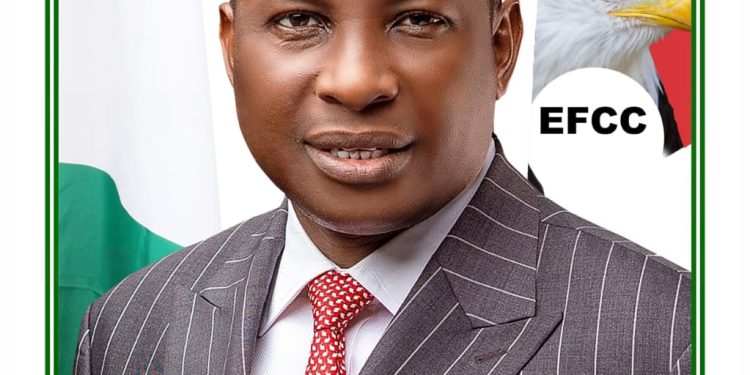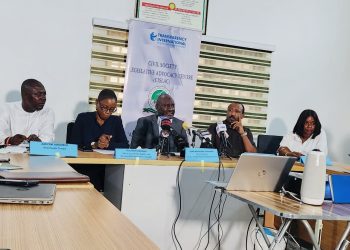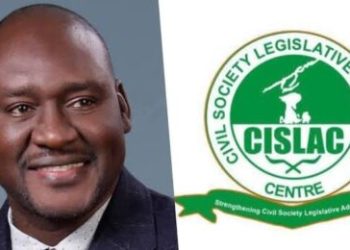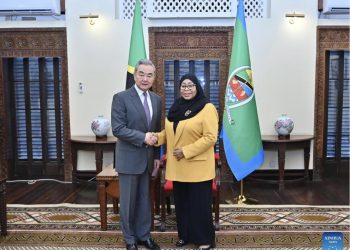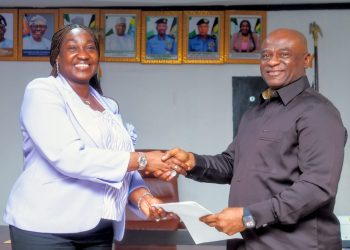…Over ₦100bn Recovered Funds Channelled Into National Development
By Nkechi Eze
When President Bola Ahmed Tinubu appointed Mr. Ola Olukoyede as Executive Chairman of the Economic and Financial Crimes Commission (EFCC) on October 18, 2023 and the Senate swiftly confirmed his appointment the next day, few anticipated the scale of transformation that would follow. Two years down the line, the EFCC under Olukoyede has not only redefined Nigeria’s anti-graft narrative but also repositioned itself as a model of transparency, professionalism, and institutional integrity in Africa’s fight against financial crimes.
From robust enforcement to sweeping reforms, Olukoyede’s leadership has delivered measurable results that resonate across all spheres of governance. Whether through the prosecution of politically exposed persons, clampdowns on cybercrime syndicates, or strategic recoveries of looted assets, his tenure has been marked by quiet efficiency, institutional discipline, and a clear departure from the theatrics of the past.
Between October 2023 and September 2025, the Commission received over 19,000 petitions, investigated more than 29,000 cases, filed over 10,500 cases in court, and secured an unprecedented 7,503 convictions, a performance that places the EFCC among the most effective anti-corruption agencies globally. These figures are not mere statistics; they tell the story of a Commission reinvigorated by purpose and driven by a results-oriented leader.
The impact of this renewed energy is evident in the calibre of individuals and syndicates brought to justice. Former governors, ministers, and senior public officials including Willie Obiano, Abdulfatah Ahmed, Darius Ishaku, Theodore Orji, Yahaya Bello, Olu Agunloye, Mamman Saleh, Hadi Sirika, Charles Ugwu, and former CBN Governor Godwin Emefiele have faced the full weight of the law under the EFCC’s watch. Beyond these high-profile prosecutions, Olukoyede’s EFCC also made history in December 2024 when it dismantled a massive cryptocurrency and investment fraud syndicate involving 792 suspects, including 192 foreigners, who were subsequently prosecuted and deported for cyber-terrorism and financial crimes.
Equally remarkable has been the Commission’s renewed attention to long-standing corruption cases once considered dormant. Under Olukoyede, cases involving figures such as Fred Ajudua, former PDP Chairman Haliru Bello Mohammed, former National Security Adviser Sambo Dasuki, and former NSITF Managing Director Ngozi Olojeme were revisited and revived, sending a clear message that under his leadership, the EFCC neither forgets nor forgives corruption.
In terms of financial recoveries, the achievements are staggering. In just two years, the EFCC recovered ₦566.3 billion, $411.5 million, £71,306, €182,877, and millions more in other global currencies. Non-monetary recoveries were equally impressive, with 1,502 properties forfeited to the government including 753 duplexes in Lokogoma, Abuja, and Nok University, now designated as the Federal University of Applied Sciences, Kachia. True to his reformist vision, Olukoyede ensured that these recoveries did not sit idle. Over ₦100 billion of recovered funds were channeled into key social investment programmes such as the Students Loan Scheme and the Consumer Credit Scheme, while several government agencies including the NDDC, AMCON, FIRS, and the National Health Insurance Authority, benefited directly from recovered assets.
Olukoyede’s leadership has also aligned anti-graft efforts with economic stability. The establishment of a nationwide Task Force on Naira Abuse and Dollarisation curbed currency speculation and naira racketeering, thereby supporting the Central Bank of Nigeria’s efforts to stabilise the economy. Similarly, the EFCC’s clampdown on rogue cryptocurrency exchanges not only stemmed capital flight but also restored public confidence in Nigeria’s currency management system.
In the realm of cybercrime, Olukoyede has pursued a dual approach of enforcement and education. Recognising that youth involvement in cybercrime represents both a law enforcement challenge and a social crisis, he launched a series of sensitisation initiatives including the 2024 Cybercrime Dialogue and the National Cybercrime Summit, where First Lady Senator Oluremi Tinubu unveiled the EFCC’s Cybercrime Response Centre. These initiatives have since inspired nationwide engagement, drawing support from religious leaders, traditional rulers, and university administrators to redirect the energy of Nigerian youths toward legitimate enterprise.
The EFCC under Olukoyede has also expanded its global footprint, cementing partnerships with leading international law enforcement agencies. Over the past two years, the Commission has signed multiple Memoranda of Understanding with the Korean Police, Royal Canadian Mounted Police, Spanish Police, and German Police, while strengthening existing collaborations with the FBI, the UK’s National Crime Agency (NCA), INTERPOL, and Japan’s JICA. Notably, the EFCC hosted former FBI Director Christopher Wray and NCA Director General Graeme Biggar in 2024, a first in its history. These partnerships have yielded tangible dividends, including the repatriation of stolen assets to victims of fraud in Spain, Canada, and the United States.
At the regional level, Olukoyede’s leadership as President of the Network of National Anti-Corruption Institutions in West Africa (NACIWA) has enhanced Nigeria’s standing in continental anti-graft collaboration. Under his direction, NACIWA was institutionalised with a permanent secretariat in Abuja, and his peers re-elected him for an unprecedented second term, a testament to his credibility and vision.
Institutionally, the EFCC has evolved under his stewardship. The creation of the Directorate of Fraud Risk Assessment and Control (FRAC) marked a strategic shift from reaction to prevention, while the Department of Internal Affairs was rebranded as the Department of Ethics and Integrity, underscoring the renewed focus on professionalism. New zonal offices were established in Ekiti, Anambra, and Katsina States, bringing the Commission closer to the grassroots, and the total number of Zonal Directorates now stands at 17. The EFCC Academy in Giri is also undergoing expansion, with the addition of a Cybercrime Research Centre aimed at redirecting youth innovation towards positive technological pursuits.
Internally, Olukoyede’s zero-tolerance stance on corruption within the EFCC has been firm and uncompromising. “You cannot use corruption to fight corruption,” he declared early in his tenure, setting the tone for internal discipline. All staff were mandated to declare their assets, and officers found guilty of misconduct were shown the door. Between 2023 and 2025, a total of 55 staff were dismissed for various offences, including a former officer who tampered with exhibits, now facing prosecution.
Conversely, he has ensured that integrity is rewarded. Promotions, improved welfare, and the provision of CNG buses for staff transportation reflect a leadership philosophy that combines accountability with compassion. Under his watch, prevention has become the cornerstone of EFCC’s operations, not an afterthought. Through risk-based monitoring of MDAs, the Commission’s interventions have directly ensured that over 80 percent of the Presidential CNG buses were delivered without diversion or leakage.
Perhaps the most symbolic of Olukoyede’s reforms is the establishment of EFCC Radio 97.3 FM, Nigeria’s first dedicated anti-corruption radio station, serving as a permanent channel for public enlightenment and citizen engagement. The Commission is also undergoing a full-scale rebranding, with a new logo and slogan soon to be unveiled to reflect its evolving identity and renewed core values of integrity, accountability, and innovation.
Two years on, Mr. Ola Olukoyede’s EFCC stands as a study in institutional renewal and principled leadership. By coupling enforcement with prevention, discipline with innovation, and accountability with compassion, he has repositioned the Commission as a credible, globally respected force in the fight against corruption.
In a nation long plagued by impunity and mistrust, Olukoyede’s EFCC has rekindled faith in the idea that public office can indeed serve the public good, and that Nigeria’s anti-graft war, under firm and ethical leadership, can finally yield lasting change.


